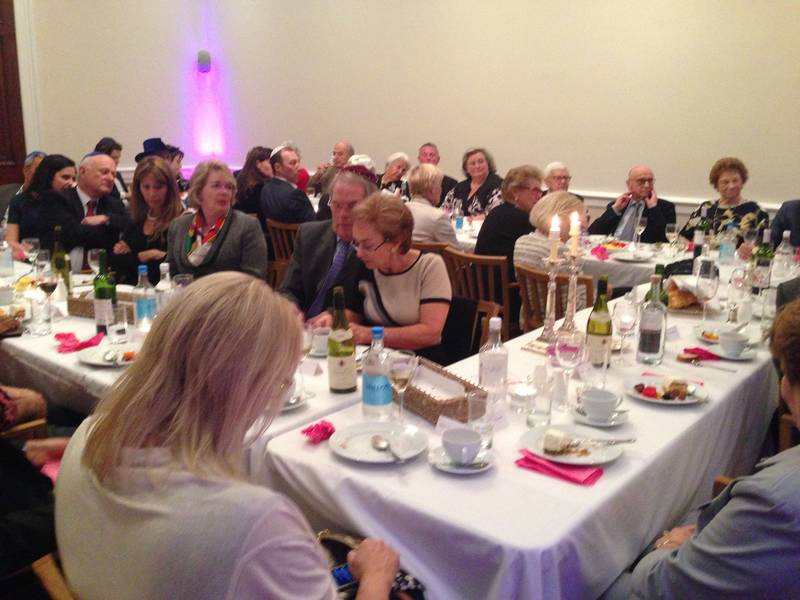



Shavuot has long been a highlight for us at Westminster Synagogue. A joyous festival when we celebrate receiving Torah, study and eat cheesecake, read on to find out why.
What's the history?
Shavuot, meaning the Festival of ‘Weeks’, is the second of the three major festivals with both historical and agricultural significance (the other two are Passover and Sukkot). Agriculturally, it commemorates the time when the first fruits were harvested and brought to the Temple, and is known as Hag ha-Bikkurim (the Festival of the First Fruits). Historically, it celebrates the occasion of the receiving of the Torah by Moses and the Israelites at Mount Sinai. For this reason it is also known as Hag Matan Torateinu (the Festival of the Giving of Our Torah).
What do people do?
As Shavuot is an ancient pilgrimage holiday, most of the rituals concerned with it are carried out as a community. One of them is staying up all night for the ‘Tikkun Leyl’, or night of study, which parallels what the Jewish people should have been doing as they waited for Moses to finally come down the mountain with tablets in hand. In staying up all night, it guarantees that we’ll be ready to receive Torah when the moment comes. Another tradition is the eating of dairy products such as ice cream and cheese cake and dairy products. Opinions vary as to the origin of this custom. There are those who believe that it is a reminder of the promise regarding the land of Israel, a land flowing with "milk and honey." According to another view, it is because our ancestors had just received the Torah (and the dietary laws therein), and did not have both meat and dairy dishes available.
A third tradition is the reading of the Book of Ruth. This book takes place at the time of the barley harvest, and the story of Ruth’s assumption of her mother-in-law Naomi’s religion reflects the Israelites’ acceptance of the Torah at Sinai. In Ruth’s acceptance of Torah with the immortal line, “My people are your people”, also explains why she is held in such high esteem within the faith as the ‘prototype’ convert.
